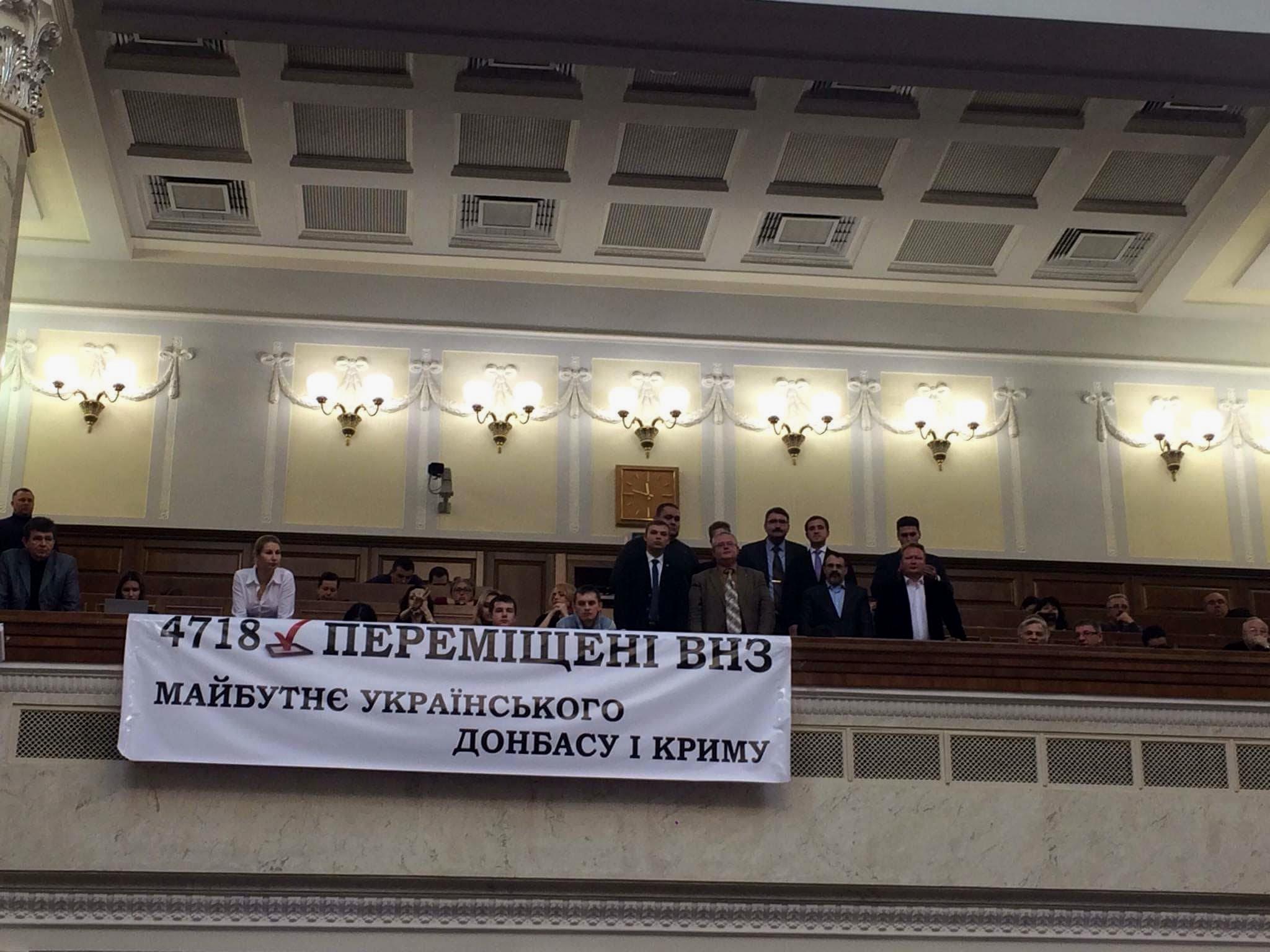Before traveling to the occupied regions of the Donbas it is necessary to realize one unpleasant reality: it is a trip to the ghetto.
During the Yalta European Strategy (YES) meeting I had an interesting discussion with a German journalist. She accused me -- and not only me -- of lacking objectivity. Of not wanting to have a dialogue with the residents of the Donbas, of listening only to ourselves without considering the opinions of others. And this, of course, is not journalism.
In response I said that, naturally, it is possible to visit the Donbas and to cover events. This discussion, I would like to point out, took place before the trip of Andriy Kulykov (talk-show host on ICTV who traveled to Donetsk on September 17 --Ed.), because at that time I could not even imagine that a Ukrainian journalist would appear on one of the channels in the occupied territories. But all this reminds me of the visit of German filmmakers to the Warsaw ghetto. These brave journalists also spoke with people in the streets. They had absolutely no problem communicating with the local authorities. Then they produced a very "objective" film from this visit. It had one narration for the residents of the Reich and another for the Western countries. Moreover, there were no soldiers with guns standing by the interview subjects of the German filmmakers. They were standing at the perimeters of the ghetto.
My companion was offended, as would anyone who does not want to hear the uncomfortable truth. So, before you take a trip to the Russian occupied regions of the Donbas, you must tell yourself one fairly unpleasant thing: it is a trip to the ghetto. And a trip to the ghetto -- even with the intent to engage in dialogue and to tell the truth -- is always abuse of its inhabitants.
A ghetto can be of any dimension. It can be the size of several districts of Warsaw. It can be the size of North Korea. Or it can be as huge as the Soviet Union. There is one thing that differentiates a ghetto from a free country -- the knowledge that I have nowhere to go from here and that I will be punished if I protest or express disagreement. Different people live in the ghetto. Even in the Warsaw ghetto in the midst of hopelessness there were those who collaborated with the occupiers and those who engaged in profitable business. Yes, those who collaborated, and those who profited, and those who prayed, and those who fought, were all cremated. But before this total destruction, ordinary life in the ghetto went on as usual. Local self-government, business, political intrigues -- both among the collaborators and among the resistance fighters. Shopping in stores. Theatrical performances. Fresh newspapers. Everything appeared to exist and nothing existed. Because in reality this was not even life before death, but in death.
Of course, this is an extreme example. I mention it only because "journalists" travelled even to the ghetto. To take another less extreme example -- the Soviet Union. Could any Western journalists come to the country and speak on TV? Theoretically, they could. The fact that Soviet authorities objected was explained by their idiocy and not at all by the desire to hide the truth. But what sense would there have been in a careful appearance by such a masterful wordsmith? Would he have said something that we did not know? The truth about Holodomor? About repressions? About the absurdity of the Soviet system?
In the Soviet Union there were no particular problems with truth. There were problems with two things -- with the desire to know the truth and with the consequences of this knowledge. You could know what was really happening but you could never share this knowledge. And not only with Western correspondents, but not even with colleagues and close friends. The consequences were immediate. However, how quickly did the Soviet people become "enlightened"! How many among them knew the truth about Stalin in 1956, about communism during Perestroika! I am sure that in Russia there will be quite a few aware of the crimes of Putin. And in the Donbas there will be those who realize that the DNR is a gang and not a republic.
But at the same time there are many inhabitants of the ghetto who do not want to know anything. In fact, it is much easier to live that way. You can, of course, enter into a dialogue with these people. But they are not more stupid than you, The simple truth is they have no values. Values do not survive well in difficult circumstances. For them to recognize your truth is to doom themselves to risk or to accept the fact that they are living improperly. In addition, each one of them remembers the soldier with the gun. Perhaps not nearby, but at the perimeter of the ghetto.
These people cannot be persuaded. They can only be freed from the soldiery. Without any guarantee that their views will change. Because, I emphasize, the issue is not at all in the absence of information but in the acceptance of information. In a system of values. This is why in Germany even now there are people convinced in the rightness of National Socialism. This is why in Russia a great many people pray for Stalin and have easily given up the truth about the recent past as soon as it became possible to do so. This is why we are surrounded by people who continue to assure us that there was no Russian aggression.
Because you can free a man from the ghetto but, in many, the spirit of the ghetto lives on.




